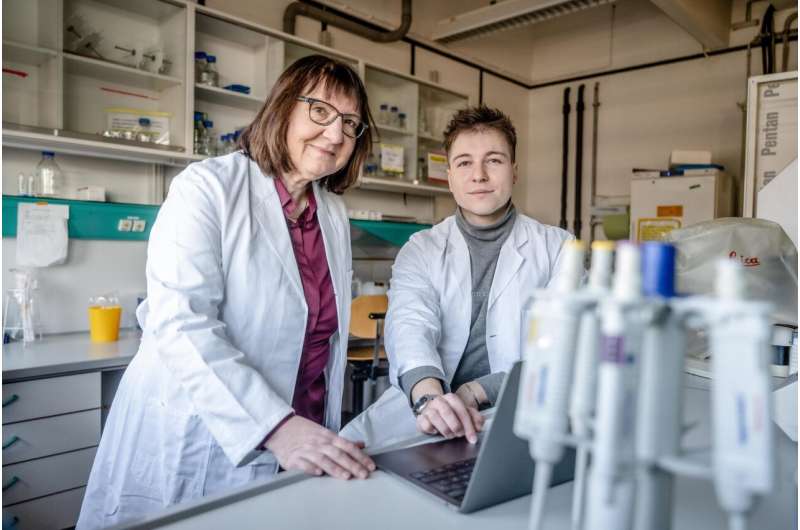Physiological study explores how to really reach students with online teaching

Even though students’ grades are no worse with online teaching than with face-to-face teaching, many report that the learning process is not sufficient. In 2022, researchers from Ruhr University Bochum’s Faculty of Medicine proved that the body actually reacts differently to online teaching than to face-to-face formats, specifically with a reduced physiological state of arousal.
In a recent study, the team led by Morris Gellisch and Professor Beate Brand-Saberi shows that the physiological state of arousal during teaching can be influenced by making the format interactive. The researchers from the Anatomy and Molecular Embryology research group, together with the team from the Cognitive Psychology research group, report the results in the journal Annals of Anatomy of January 26, 2023.
“From our point of view, these results are relevant both for the evaluation of previous digital teaching concepts and for the development of future formats,” says Morris Gellisch. “As digital learning applications become more prominent, learning environments should be designed to be demand-driven and effective.”
Physiological parameters and learning experience survey
In the previous study, the team from Bochum used hormone analyses and investigations of the activation of the autonomic nervous system to prove that the physiological state of arousal of students is greatly reduced during a digitally delivered anatomy course. For the current study, the researchers developed three different delivery modes of the course: traditional face-to-face teaching, passive online teaching and interactive online teaching.
A total of 104 students took part in the study. During the course, the researchers measured the students’ heart rate variability as an indicator of the activation of the autonomic nervous system, as well as the concentration of certain enzymes and hormones in their saliva. They also asked the participants about their learning experience after the course.
“The results show that it is possible to influence the physiological state of arousal of students in digital learning environments,” summarizes Morris Gellisch. Compared to passive online teaching, students in interactive online teaching showed increased concentrations of the stress hormone cortisol in their saliva—a sign of greater physiological arousal.
In addition, a decreased heart rate variability was shown during interactive online teaching, which is a sign that the sympathetic nervous system is activated in the autonomic nervous system, and the body thus enters a state of higher readiness to perform. Measurements of the enzyme alpha-amylase in saliva confirmed the sympathetic activation. The values for interactive online teaching were comparable to those for face-to-face teaching.
Survey shows clear differences between learning conditions
In the survey on learning experience after the course, the students indicated with a significant majority that they felt more involved in the course activities and the learning materials as well as more attentive in interactive online teaching compared to passive online teaching. However, they also said they had felt more anxiety, for example, of giving wrong answers. This anxiety was more pronounced in the group that participated interactively online than in the face-to-face group.
More information:
Morris Gellisch et al, Interactive teaching enhances students’ physiological arousal during online learning, Annals of Anatomy—Anatomischer Anzeiger (2023). DOI: 10.1016/j.aanat.2023.152050
Citation:
Physiological study explores how to really reach students with online teaching (2023, February 9)
retrieved 9 February 2023
from https://phys.org/news/2023-02-physiological-explores-students-online.html
This document is subject to copyright. Apart from any fair dealing for the purpose of private study or research, no
part may be reproduced without the written permission. The content is provided for information purposes only.
For all the latest Science News Click Here
For the latest news and updates, follow us on Google News.

